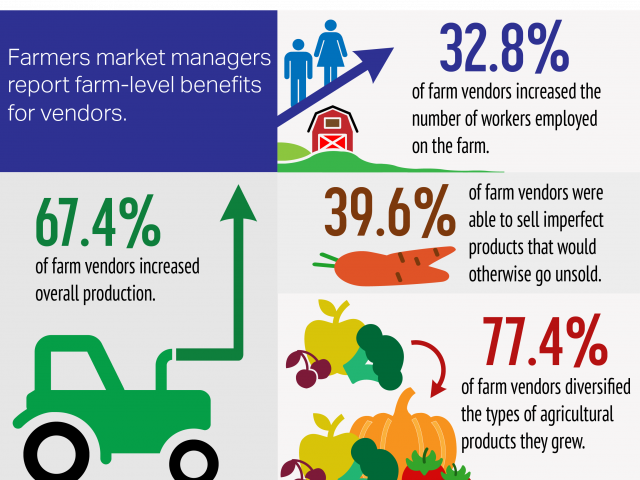USDA Celebrates National Farmers Market Week
Author
Published
8/1/2021
USDA Secretary Vilsack recently proclaimed the first week of August as National Farmers Market Week as a way to champion the direct-to-consumer producers, market managers, and customers that make their communities come alive during market days.
Local and regional food systems – including farmers markets – are critical to the future of the nation’s food system.
Farmers markets provide a unique low-barrier entry point for beginning farmers and ranchers. By selling directly to the consumer, farmers markets can provide higher returns for farmers and ranchers, and the evidence shows that these new farm businesses survive longer than new farm businesses selling strictly wholesale.
Farmers markets offer an opportunity to learn more about your food source. Markets foster relationships between producers and consumers and create a hub of activity at the center of a community.
Not to mention, during the pandemic as some longer supply chains struggled, farmers markets remained an essential source of safe and healthy food. Generally, they were able to pivot quickly, become charitable food donation and distribution points, stand up online marketplaces, and adapt to public health requirements.
The 2019 National Farmers Market Managers survey shows that there are more than 8,000 farmers markets across the country.
The results showed farm-level benefits for farm vendors, including:
Farmers markets play a critical role in our communities connecting producers and consumers, strengthening nutrition security and contributing to a fair, competitive, distributed, and resilient food system.
Editor's Note: The Utah Farm Bureau operates two farmers markets -- in Murray (opened July 30) and South Jordan (opening Aug. 7).
Want more news on this topic? Farm Bureau members may subscribe for a free email news service, featuring the farm and rural topics that interest them most!
